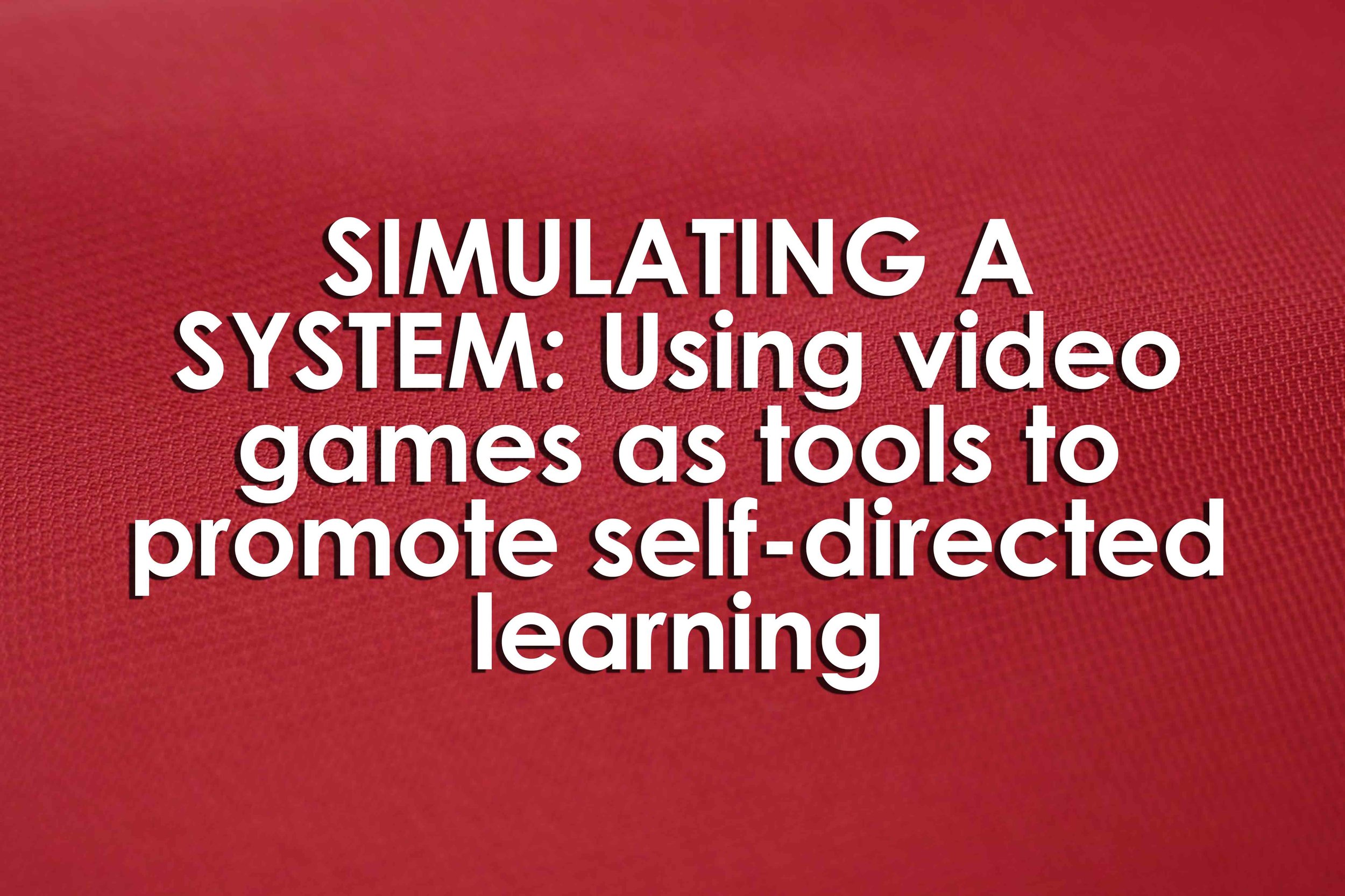SIMULATING A SYSTEM: Using video games as tools to promote self-directed learning
SIMULATING A SYSTEM: Using video games as tools to promote self-directed learning
SIMULATING A SYSTEM: Using video games as tools to promote self-directed learning
By Per Hallros and Niklas Pålsson
Abstract
“As a response to finding innovative ways of using games as tools for learning we explore the design process of creating a game system meant to promote self-directed learning. This thesis explores what design pillars a game system needs to follow when making a game that is meant to promote self-directed learning through reflection on cause and effect relations. We use a theoretical framework based on procedural rhetoric and self-directed learning in video games to inform our design process when creating an eco-adapted game system that provides experimentation opportunities. We adapt an ecosystem as a simulated real life context for our game environment and identify the major design pillars that video games looking to promote self-directed learning needs to consist of. The major pillars we found most important were; 1, activate participation, to engage the player by allowing them to experiment with different perspectives and the game state. 2, avoid correlating rhetorical arguments, to not influence players as they set their own goals when playing in an informal setting. 3, provide observational clarity, to let players learn how the actions they perform affect the actors and events in the game system. 4, enable trial and error, to give players time to explore multiple approaches in a safe environment where they can fail and try again without penalties. This thesis focuses primarily on the design process and documentation around the creation of a game system that adapts self-directed learning principles as a central design directive. In our design documentation we provide an open discussion of our design process around the decisions, findings, and implementations that make our simulation.”
Reference
Hallros, P., & Pålsson, N. (2021, June). Simulating a system: Using video games as tools to promote self-directed learning. Retrieved November 16, 2021, from http://uu.diva-portal.org/smash/record.jsf?pid=diva2%3A1575938&dswid=-287
Keyword
Computer games, game design, procedural rhetoric, self-directed learning, prototyping, simulation, research
Category
Gamification

